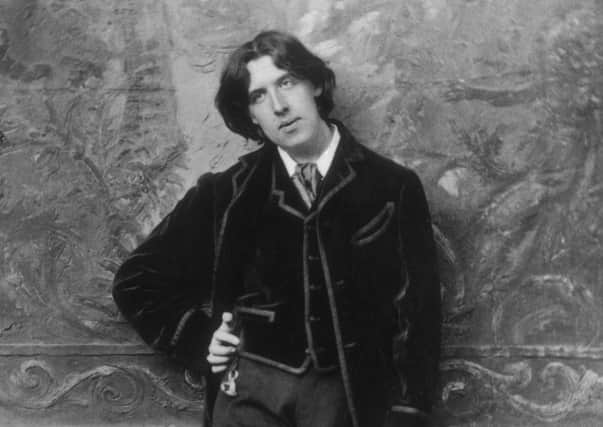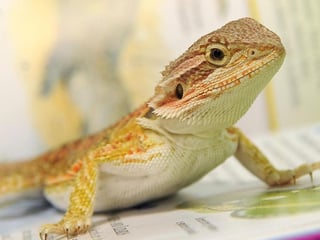Conspiracy theorists are gaining ground so we must fight back – Joyce McMillan


Truth, said Oscar Wilde, is rarely pure, and never simple; and in the world’s struggle to get to grips with the new coronavirus – its causes, its symptoms, its means and speed of transmission, and its possible eventual antidotes and vaccines – it’s easy to see just how right he was.
The fact that the truth is hard to establish, though – and can never, given the complexity of the universe, be known in full – has never been an excuse for behaving as if truth does not exist, and can just as well be replaced by random opinions, notions and fantasies; which makes it all the more worrying that we now seem, in the UK and many other countries, to be facing a perfect storm of incredulity and anger, disinformation and distrust of authority – all amplified by new media which notoriously promote the strident and simplistic over the nuanced and detailed – that can give the wildest of conspiracy theories equal currency with the best wisdom science has to offer.
Advertisement
Hide AdAdvertisement
Hide AdThe most outstanding Covid-related example, of course, is the great 5G conspiracy theory, which without any evidence at all, beyond the accident of timing, links the current Covid epidemic to the gradual roll-out of 5G technology, and has led to actual attacks on mobile phone masts, including more than 20 in the UK. The uncomfortable fact, though, is that the 5G fantasy is only the latest of a series of more or less wild beliefs to take a grip on the minds of surprisingly large numbers of people. Bold and fantastical disinformation campaigns are not new, of course, either in politics or in journalism.
Yet there’s no denying the exceptional role of what were often fairly wild propaganda memes in the two notorious electoral campaigns of 2016, the British Brexit referendum and the US presidential election; memes that ranged from claims circulated via Facebook that the EU was stopping the UK from protecting polar bears, to the simple but familiar political lie that America could protect itself from a whole range of evils by simply building a border wall. And this age of successful political lies has helped spawn a generation of right-wing politicians who at worst actually seem to believe many of the crazy conspiracy theories in circulation, and even at best – as in the case of the British Prime Minister – are not above weaponising them for political gain, and embracing big lies, the more vivid the better, as the very foundation of their own careers.
Small wonder, perhaps, that in what some have called “the age of stupid” generated by these unchallenged falsehoods, the UK is now stuck with a Cabinet – selected for dumb acquiescence in the highly debatable Brexit project, and unquestioning loyalty to the PM – which is barely able to put up a credible spokesperson for interview in Boris Johnson’s absence. And now – following this week’s row over the broadcaster Eamonn Holmes, who chose the wrong moment to wonder whether we can afford to accept the blanket assurances of big communications companies on the complete safety of mobile phone masts – it seems we may even be in danger of veering from a world in which too much rubbish has been published and believed for far too long, to one in which big corporations and governments, some of which have risen to power on a veritable tsunami of lies, now take it on themselves to decide which myths should be promulgated relentlessly day and night – notably, in Britain, the one about our allegedly unique ability to “carry on” through any crisis – and which should be ruled out of court, as crazy, misleading and dangerous.
And in the end, there is only one decent and hopeful escape route from the series of social meltdowns, ill-handled crises and threats to free speech that we can expect to experience, if we return, post-Covid, to our recent habit of making policy on the basis of myth, rather than some semblance of fact. That route lies in the common sense and clear thinking of ordinary citizens who see themselves as part of a democratic community, who take their share of responsibility for the future, and who are willing to work and debate with other people in the effort to find the best way forward.
Of course, no society is perfect, in its ability to generate that sense of community among its citizens, and to earn their support in engaging with the real decisions facing us.
What is clear, though, is that the harder a society works at creating a sense of equal worth in its citizens, the more it seeks to provide the basic necessities of life as a birthright, the more it educates and enlightens, and the more it addresses its citizens as adults and equals rather than as fools to be bamboozled and deceived, then the more firmly it is inoculated against the sheer fantastical unreason of many of the ideas currently in circulation; and conversely, that the more a society disempowers its citizens, undermines their rights and security, and weakens their communities, the more vulnerable they will be to the snake-oil salesmen of fake news.
For more than a generation, the political right in Britain and America has been allowed, on very slender evidence, to portray the self-interested agenda of those with big bucks to invest as being somehow good for all of us; now, the coronavirus crisis has fully exposed just how poorly that agenda has been serving millions of ordinary workers on whose labour we all depend.
The situation will never change, though, so long as people who should be active citizens allow their minds to be filled with junk information, just as too many bodies have been damaged by junk food. We were all born deserving the best. To get it, though, we have always had to stand up, unite and fight, as equal citizens with a right to seek out reliable information, to abandon delusional quests for absolute certainty, and to take part in the common human pursuit of the best knowledge available to us, at any given moment; and then in the making of the best-possible decisions, for our own future and that of our children, that should flow from that knowledge.
A message from the Editor:
Advertisement
Hide AdAdvertisement
Hide AdThank you for reading this article on our website. While I have your attention, I also have an important request to make of you.
With the coronavirus lockdown having a major impact on many of our advertisers - and consequently the revenue we receive - we are more reliant than ever on you taking out a digital subscription.
Subscribe to scotsman.com and enjoy unlimited access to Scottish news and information online and on our app. With a digital subscription, you can read more than 5 articles, see fewer ads, enjoy faster load times, and get access to exclusive newsletters and content. Visit www.scotsman.com/subscriptions now to sign up.
Our journalism costs money and we rely on advertising, print and digital revenues to help to support them. By supporting us, we are able to support you in providing trusted, fact-checked content for this website.
Frank O’Donnell
Editorial Director
Comments
Want to join the conversation? Please or to comment on this article.
